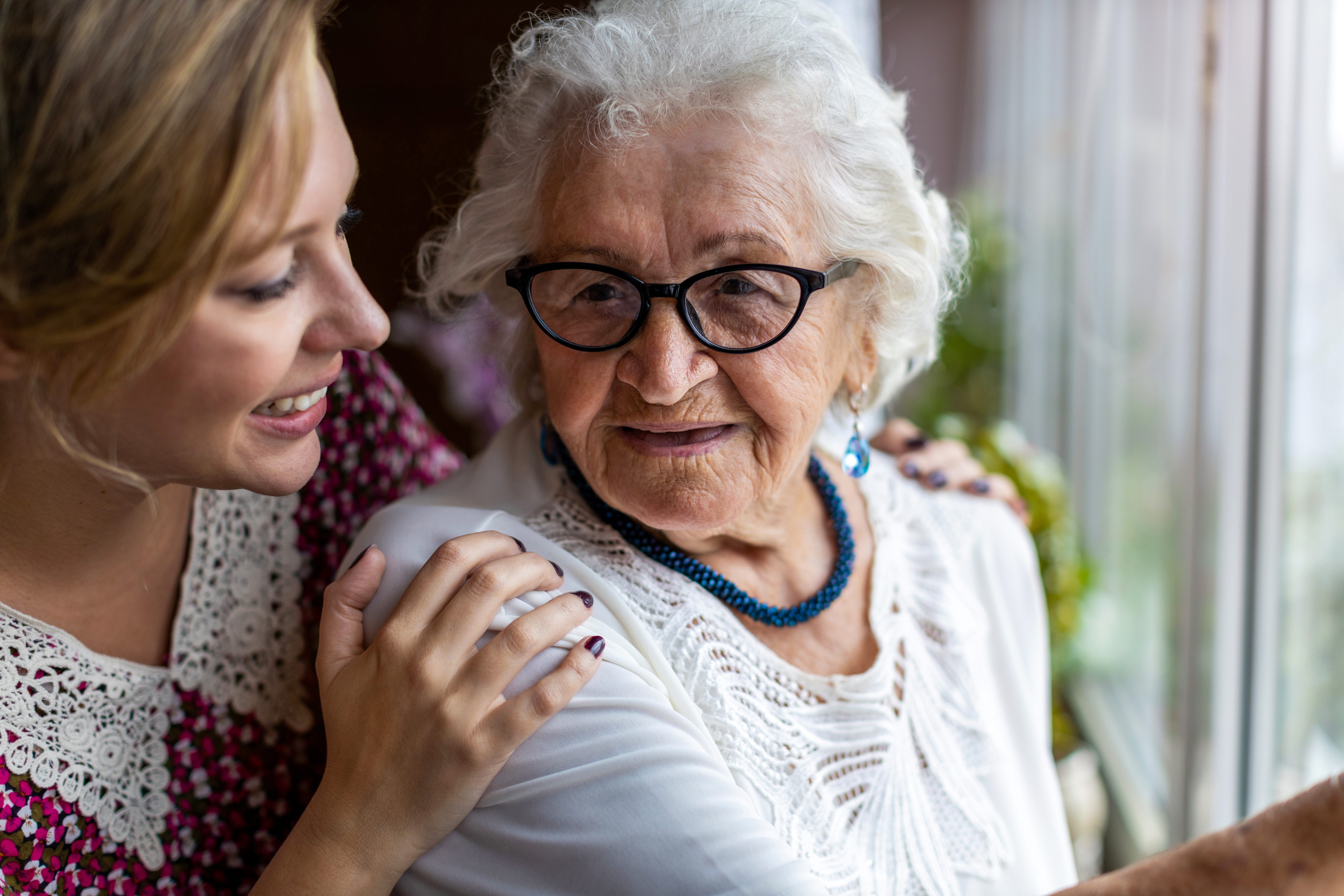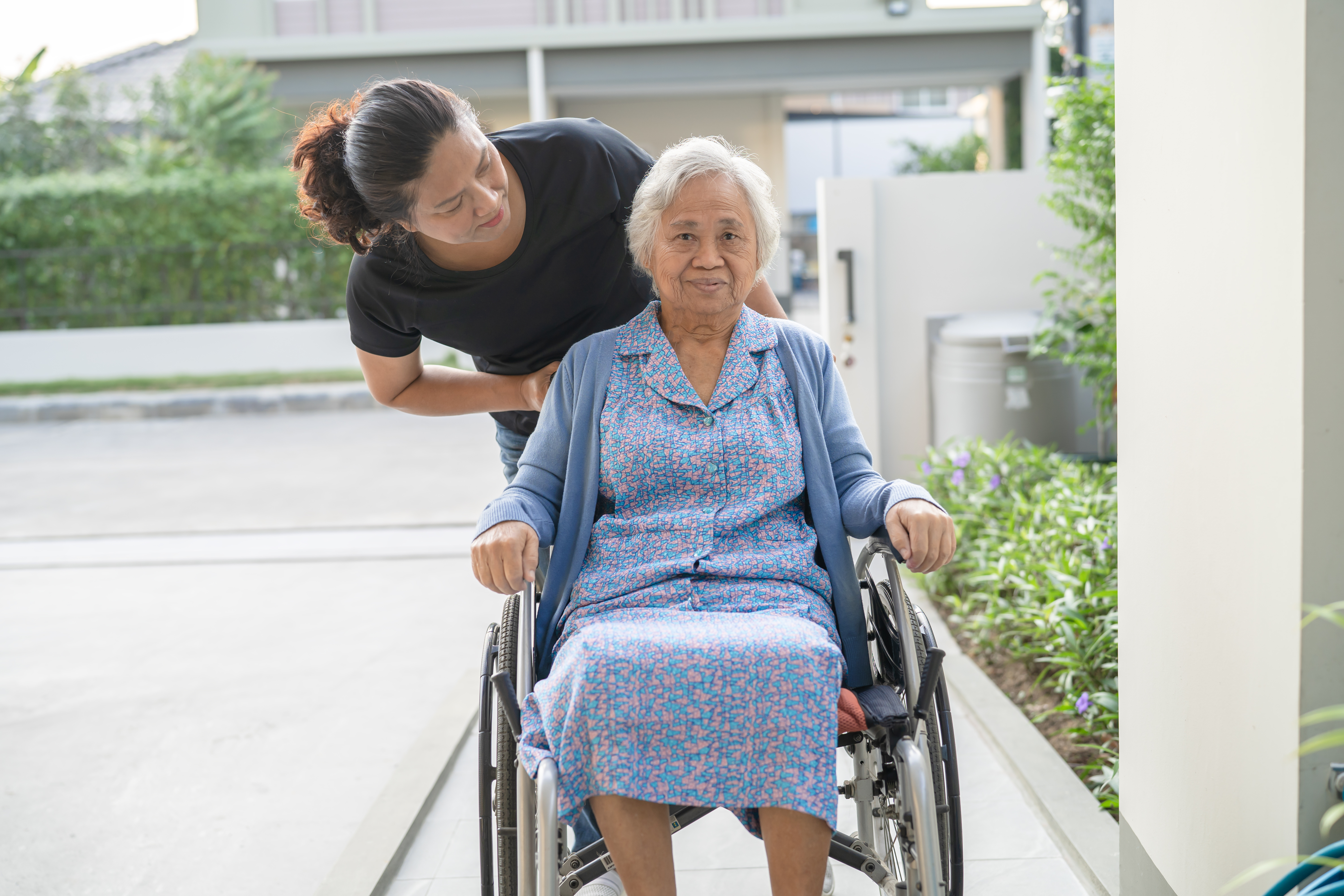How to offer caregiving support to a loved one after a stroke

Supporting a loved one after a stroke is about finding a balance between offering help and respecting their independence. Compassion, patience, and understanding can make a significant difference to your loved one’s recovery as you offer practical and emotional support.
As a caregiver for a loved one who has suffered a stroke, you have the power to bring comfort, confidence, and joy into your loved one’s life.
But caring for a loved one after a stroke can feel like navigating uncharted territory. You want to offer help without overstepping boundaries or diminishing their sense of independence. Finding the right balance is essential for their recovery — and maintaining your relationship.
Here are five practical ways to provide humble, meaningful support:
1. Respect their independence
When supporting a loved one who has experienced a stroke, remember to encourage their independence as much as possible. While it may be tempting to jump in and do everything for them, allow your loved one to do what they can on their own, even if it takes them a little longer.
That said, consider offering support with tasks such as:
Dressing
Cooking
Personal hygiene
For example, if they’re struggling to button their shirt, gently offer assistance, but let them take the lead. Before assuming they need help with a particular task, ask them, “Is there something I can help with, or would you prefer to do it yourself?”
2. Be a good listener
Sometimes, the most helpful thing you can do is listen. After a stroke, your loved one may feel isolated or frustrated by their recovery. Simply being there to hear their thoughts, worries, or emotions without offering immediate solutions can show your genuine support.
Let them share their feelings, whether it’s fear about their recovery, sadness about their limitations, or excitement over a small success. Often, the healing process involves emotional recovery just as much as physical recovery, and having someone who listens with empathy can be incredibly soothing.
Validate their experience by saying things such as, “I understand how tough that must be,” or “It’s OK to feel frustrated sometimes.” These small gestures can provide comfort and a sense of connection.
3. Encourage small, achievable goals
After a stroke, it’s easy for recovery to feel overwhelming. Large tasks can seem impossible, and your loved one may become discouraged by the amount of work ahead of them. You can offer support by helping them break down their goals into smaller, more achievable steps.
Instead of focusing on the broad, vague goal of “getting better,” help them set daily activities at home or weekly goals that are specific and attainable. For example, if they’re working on regaining mobility, encourage them to take a short walk or try a few steps each day.
If they’re working to improve their communication, celebrate the small victories such as making a phone call or writing a sentence. By focusing on these smaller wins, you can help them regain confidence and motivation. Progress, no matter how small, is still progress.
4. Provide practical assistance without taking over
There may be times when your loved one needs help with practical tasks such as meal preparation, housekeeping, or driving to medical appointments. Offering your assistance is valuable, but do so in a way that supports rather than overwhelms.
One way to strike this balance is by offering help with specific tasks rather than assuming control. Instead of saying, “I’ll just do it,” try saying:
“Would it be helpful if I made dinner tonight?”
“I can drive you to your appointment if you’d like.”
“May I take care of the vacuuming for you today?”
This gives them the opportunity to accept help without feeling like they’ve lost control of their daily life. Additionally, when offering assistance, find ways to preserve their independence. For example, you could prepare ingredients for a meal but allow them to cook or assemble the dish, or help them set up home modifications to support activities of daily living.
5. Offer emotional and social support
Recovery from a stroke is as much about emotional well-being as it is about physical healing. Isolation, anxiety, and depression are common among stroke survivors, which makes social support crucial for their full recovery.1
Help your loved one stay connected to friends and family by organizing small gatherings, sending cards, or making phone calls on their behalf.
If your loved one is feeling particularly low, try to gently encourage activities that can boost their mood, such as listening to their favorite music, watching a beloved TV show, or going for a walk together.
Supporting your loved one’s stroke recovery
Supporting a loved one through recovery after a stroke can be a challenging yet rewarding experience. While it’s natural to want to say the perfect words, what truly matters is your sincerity and compassion. The right words, offered with empathy and care, can elevate their sense of support, hope, and dignity.
Remember: you don’t need to have all the answers. You simply show up and listen.
Discover more tips on stroke caregiving
Get more tips on how to care for someone after a stroke with our guide.





